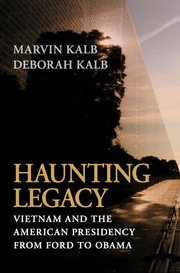Q&A with Prof. Donald Zillman
 Thursday, July 26, 2012 at 6:30AM
Thursday, July 26, 2012 at 6:30AM Donald N. Zillman is the Edward Godfrey Professor at the University of Maine School of Law. Among his areas of expertise is the military background of lawmakers. He served in the U.S. Army, Judge Advocate General’s Corps, Active Duty 1970-74, Reserve Duty 1974-84.
Q: You have studied the impact of military service on lawmakers. How does it affect a lawmaker to have served in the military, and what are some examples of the impact?
A: Since 1992, I have tabulated the military service (or not) of all members of the U.S. Senate and House of Representatives. I draw my data from the Congressional Quarterly’s post-election profiles of members of Congress. Military service is one biographical detail listed. My research has not included individual interviews with legislators who are also veterans. (I hope one day to have the time to undertake such a study.)
In a 1997 article, I indicated some of the attributes that military service would give to a federal legislator. I repeat and elaborate on those conclusions. 1) The military embodies national virtues. Those virtues include courage, fortitude, selflessness, and respect for discipline. 2) Military service remains the significant “school of the nation.” It exposes the service member to a wide slice—racial, religious, socio-economic, geographical-- of the American community. I recall the eminent military sociologist Charles Moskos’ observation of the 1990s that the U.S. military is the only part of American society in which blacks regularly boss around whites. Also, no other profession has a dedication to national service above self as its primary ethic. 3) For certain high-ranking military members, their service may give them genuine expertise on important military issues that face the Congress. This is highly valuable in the Congress’ dealing with the military. 4) Even lower-ranking veterans have perspectives on military issues that non-veterans will lack. These may include such issues as the value of aspects of new weapons systems or matters related to unit efficiency or morale. 5) Prior military service provides valuable perspective on a legislator’s most consequential military votes—to commit American forces to combat. The veteran brings a perspective to the implications of such a vote that the non-veteran lacks. The veteran also may be perceived to have a greater moral authority to make that decision—“I’ve done what I’m asking our troops to do.”
In the 15 years since those observations, I would add two more likely expectations of prior military service. Neither is the exclusive province of veterans. But, on average, I suspect the veteran is more likely to bring these attributes to his or her legislative service than the non-veteran. The first is a familiarity with international affairs. Whether the congressional veteran was a low-level enlisted member or a high-ranking officer, he or she has experienced some consequences of the United States being a part of a complex and increasingly interconnected world.
Second, the military experience on balance has educated the veteran on the need to work collaboratively with a wide variety of superiors, equals, and subordinates. That is badly needed in today’s Congress. Former Senator Warren Rudman, a Korean War veteran, appropriately titled his autobiography “Combat: Twelve Years in the U.S. Senate.” One of Senator Rudman’s more telling observations was the ability of veterans of both parties to unite on major issues as fellow Americans. He also suggested the quiet contempt combat veteran legislators had for legislators who were ready to equate partisan political battling with actual military experience.
Q: This is the first election since 1944 in which neither major-party candidate for president has military experience, and in addition, fewer members of Congress have military service these days. What does this mean for the country, and will this trend continue?
A: During the Vietnam War era, approximately two-thirds of members of Congress were veterans. In 1992, when I first studied veterans in Congress, that percentage had dropped to one-half. In every election since then (including 2010), the fraction has continued to declined. Now, less than one-fifth of the members of Congress have military service. The reasonable likelihood is that percentage will continue to decline in future elections.
There are several reasons for this. The military itself has declined in size over the last 40 years. Our total population of all the armed forces today is smaller than the Army alone at the height of the Vietnam War. Second, the era of the draftee or draft-induced volunteer has almost ended. No congressional candidate today under age 55 will have faced a military draft. Their decision to enter the armed forces was a voluntary one. Third, while the prospective veteran congressional candidate offers attractive features to party selectors or to voters, he or she also presents some disadvantages because of military service. Military service is likely to have removed the veteran from a political home base, have precluded the acquisition of any significant personal wealth, and have disqualified the veteran from most political activity while in uniform.
Q: Have you found a difference between Democratic and Republican members of Congress in terms of the percentages that have served, and, if so, how does that affect the two parties?
A: In 1997, I noted that while more veterans were Republicans than Democrats, the numbers did not appear out of proportion with GOP majorities in both houses of Congress. Things have change since then. Elections between 1998 and 2004 added to the Republican margin. Democrats made some gains in the 2006 and 2008 elections. But the large GOP gains in 2010 turned the “veterans bloc” heavily Republican. As of the 2010 election, the total of 105 military veterans in Congress were composed of 70 Republicans and 35 Democrats. Newly elected legislators from the 2010 election included 22 Republicans with military experience and only one Democrat. All veterans with military service later than 1973 (roughly the start of the Volunteer Army era) follow the same divide—14 Democrats and 28 Republicans.
Q: What about women with military experience in Congress--how many are there, and are they likely to increase in number?
A: Rep. Sandra Adams (R-Fla.) is the only female veteran in Congress. She follows New Mexico Republican Heather Wilson who served in the House of Representatives for the better part of a decade. Ms. Wilson is presently the GOP candidate for a New Mexico Senate seat. If victorious, she would be the first woman senator with military experience.
The near total absence of female veterans from Congress is surprising. The 2010 election resulted in 73 women representatives and 15 senators. Women approach or exceed 15 percent of the membership in the various armed forces. The service academies have been gender-integrated for over a quarter of a century. A woman with a credential including honorable and distinguished military service should be an attractive congressional candidate from either political party. Interesting bellwether elections in 2012 should be the New Mexico Senate contest between veteran Republican Wilson and non-veteran Democrat Martin Heinrich and the Illinois House race between incumbent, non-veteran Republican Joe Walsh and veteran and Democrat Tammy Duckworth.
Q: Could you describe your own military service and how it affected your subsequent career and research choices?
A: My own military service shaped my career in ways that I wouldn’t have imagined when I first entered the Army Judge Advocate General’s Corps. The opportunity to teach and research in the fields of military law at the JAG School in Charlottesville, Virginia, led to a civilian law school teaching career. A portion of my civilian academic work has included military issues. The JAG School base also allowed me to take advanced degree work in international and energy law at the University of Virginia Law School. Energy law teaching and research has been a large portion of my teaching and research life. The military experience and the Virginia Law experience also exposed me to international issues that have been a major part of my professional life. Later in my career when I moved to university administration, my military experiences shaped my performance as a dean, provost, and president in both many ways.
Q: Anything else we should know?
A: I close with two random observations. First, military service is hardly a guarantee of election. The 2010 elections defeated several incumbent congressmen with strong military records. Almost certainly, they didn’t lose because of their veteran’s status. But, that wasn’t enough to save them when other issues weighed against them. Likewise, the irony of presidential elections since 1992 is that the candidate with the less impressive military resume has always defeated the candidate with the stronger resume (non-veteran Bill Clinton over World War II combat veterans George H.W. Bush and Bob Dole; stateside National Guardsman George W. Bush over Vietnam vets Al Gore and John Kerry; non-veteran Barack Obama over Vietnam combat hero and POW John McCain).
Second, the narrow issue of the presence of veterans in Congress is a part of the larger question of civil-military relations that has been part of the American experience since colonial days. With rare exceptions, the military has been respectful of the citizenry and the civilian leadership. Less certain has been the obligation of the citizen or the civilian leader towards the military. Today, a very small proportion of the citizenry (and an even smaller proportion of its elites) has any familiarity with the military. That isn’t healthy for American democracy.
Interview with Deborah Kalb, co-author of Haunting Legacy.



Reader Comments